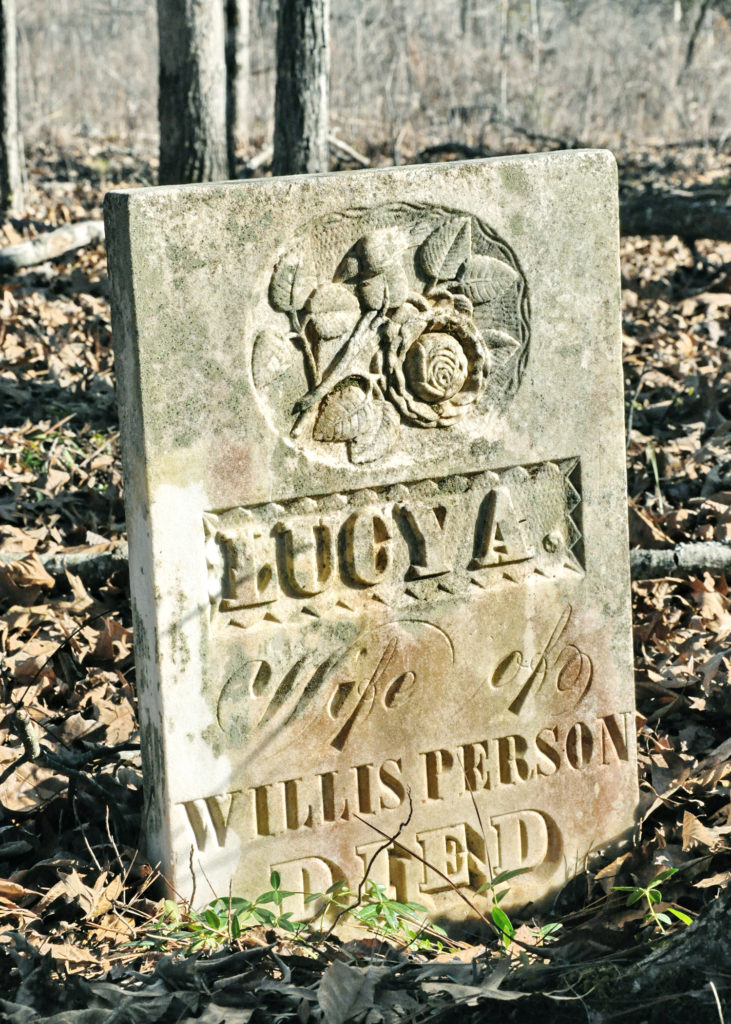Ames cemeteries are of several types including family plots, church cemeteries, and burial grounds of the enslaved. Often when a family member died they were laid to rest in a family cemetery established near the home. Some of these family plots contain a single grave, while others are the burial sites of up to thirty individuals who were related either through blood or marriage. Three of our cemeteries are associated with historic churches in the area, both white and African-American. Up to six of the cemeteries serve as the final resting place of enslaved African-Americans who toiled on the historic cotton plantations which are now encompassed within the Ames land holding. These are large cemeteries with burials exceeding 100 in some cases.
In order that the cemeteries of the Ames Property survive for future generations we are actively involved in a management program for the purpose of investigating, restoring, and preserving these important cultural resources.
